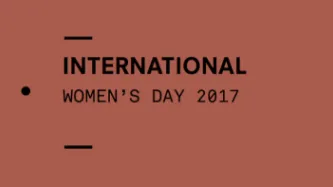Advanced Search
Content Type: Report
New technologies continue to present great risks and opportunities for humanitarian action. To ensure that their use does not result in any harm, humanitarian organisations must develop and implement appropriate data protection standards, including robust risk assessments.
However, this requires a good understanding of what these technologies are, what risks are associated with their use, and how we can try to avoid or mitigate them. This joint report by Privacy International and the…
Content Type: Examples
In May 2018, US Immigration and Customs Enforcement abandoned the development of machine learning software intended to mine Facebook, Twitter, and the open Internet to identify terrorists. The software, announced in the summer of 2017, had been a key element of president Donald Trump's "extreme vetting" programme and expected to flag at least 10,000 people a year for investigation. ICE decided instead to opt for a contractor who could provide training, management, and human personnel to do the…
Content Type: Advocacy
In response to the consultation on ‘Gender perspectives on Privacy’ by the UN Special Rapporteur on the right to privacy, Privacy International presented a submission with its observations.
Content Type: Long Read
If you operate an internet company in Russia, you aren’t necessarily surprised to one day open the door to someone, grasping in one hand a bundle of wires and in the other a letter from a government agency demanding access to your servers, with a black box wedged under one arm.
Internet companies in Russia are required by law to store the content of users’ communications for six months and the metadata of users’ communications for three years, essentially meaning that what a person does…
Content Type: Examples
In a 2017 study of patterns of postings on Chinese social media, three Harvard researchers disagreed with the widespread claim that the government's strategy is to post "50c party" posts that argue for the government's side in policy and political debates. Instead, the researchers estimated that the Chinese government fabricates as many as 448 million social media comments a year but found that these avoid controversial issues and arguments with government skeptics. Instead, the researchers…
Content Type: Examples
In 2016, the American Civil Liberties Union of Northern California published a report revealing that the social media monitoring service Geofeedia had suggested it could help police track protesters. The report's publication led Twitter and Facebook to restrict Geofeedia's access to their bulk data. ACLUNC argued that even though the data is public, using it for police surveillance is an invasion of privacy. Police are not legally required to get a warrant before searching public data; however…
Content Type: Examples
At the Sixth Annual Conference on Social Media Within the Defence and Military Sector, held in London in 2016, senior military and intelligence officials made it clear that governments increasingly view social media as a tool for the Armed Forces and a "new front in warfare". Social media are also viewed as a source of intelligence on civilian populations and enemies and as a vector for propaganda. The conference was sponsored by Thales, which was working with the National Research Council of…
Content Type: Examples
Documents submitted as part of a 2015 US National Labor Relations Board investigation show that Walmart, long known to be hostile to unions, spied on and retaliated against a group of employees who sought higher wages, more full-time jobs, and predictable schedules. In combating the group, who called themselves the Organization United for Respect at Walmart (OUR Walmart), Walmart hired an intelligence-gathering service from Lockheed Martin, contacted the FBI, and set up an internal Delta team…
Content Type: Examples
In 2015, The Intercept obtained documents showing that the Mall of America in Bloomington, Minnesota used a fake Facebook account to friend and monitor local Black Lives Matter activists, and collect their personal information and photographs without their knowledge. The account was discovered in a cache of files the Mall of America provided to Bloomington officials after a large BLM protest against police brutality that was held at the mall. After the protest, the city charged 11 protesters…
Content Type: Examples
Twitter requested one of its key B2B partners, Dataminr — a service that offers advanced social media analytics and early detection of major events like terrorist attacks or natural disasters — stop providing U.S. intelligence agencies with their tools and content. Dataminr isn’t ending its relationship with the government altogether: Dataminir still counts In-Q-Tel, the non-profit investment arm of the CIA, as an investor. Dataminr has taken investment from Twitter, too, highlighting some of…
Content Type: Examples
In 2016, researchers discovered that the personalisation built into online advertising platforms such as Facebook is making it easy to invisibly bypass anti-discrimination laws regarding housing and employment. Under the US Fair Housing Act, it would be illegal for ads to explicitly state a preference based on race, colour, religion, gender, disability, or familial status. Despite this, some policies - such as giving preference to people who already this - work to ensure that white…
Content Type: Examples
Facebook has come under fire after leaked documents revealed the social media site has been targeting potentially vulnerable children.
The allegations suggest the company is gathering information on young people who “need a confidence boost” to facilitate predatory advertising practices.
Confidential documents obtained by The Australian reportedly show how Facebook can exploit the moods and insecurities of teenagers using the platform for the benefit of advertisers.…
Content Type: News & Analysis
Below is the introduction to Privacy International's 2017 International Women's Day report, which highlights the recent work of the PI Network on privacy, surveillance, and gender.
Many of the challenges at the intersection of women’s rights and technology as it relates to privacy and surveillance, come down to control. Such challenges have come sharply into focus as societies trend toward surveillance by default and foster data exploitative ecosystem.
And whilst control, in the context of…
Content Type: Explainer
What is SOCMINT?
Social media intelligence (SOCMINT) refers to the techniques and technologies that allow companies or governments to monitor social media networking sites (SNSs), such as Facebook or Twitter.
SOCMINT includes monitoring of content, such as messages or images posted, and other data, which is generated when someone uses a social media networking site. This information involves person-to-person, person-to-group, group-to-group, and includes interactions that are private and…
Content Type: Advocacy
Privacy International has today submitted comments to a U.S. government consultation on whether the US Department of Homeland Security (DHS) should keep the social media details of individuals travelling to the US in so-called “Alien Files” documenting all immigrants.
We’ve urged that they don’t, and that they review and stop all similar social media surveillance by the DHS.
The systematic surveillance of social media is an increasingly dangerous trend …
Content Type: Long Read
This report examines the emergence of social media based surveillance in Thailand, carried out potentially by people’s own networks of friends and family. It looks at the severe impact this has on personal privacy and points to potential solutions.
In May 2014, Thailand experienced a military coup – its second in eight years. A military government led by General Prayut Chan-o-cha seized power and overthrew the administration of Prime Minister Yingluck Shinawatra. The Army declared martial…
Content Type: News & Analysis
This Sunday is International Women's Day. You could celebrate the considerable progress in legislating for women's equal rights. You could join a protest against political and legal inequality, discrepancies in women's access to healthcare, education and other social goods. You could thank your mom for delivering you.
Here at Privacy International, we want to commemorate the importance of this day by looking at some of the ways surveillance technologies can be used to control women and how the…
Content Type: News & Analysis
Political activist and university lecturer Tadesse Kersmo believed that he was free from intrusive surveillance when he was granted political asylum in the UK. Instead, he was likely subject to more surveillance than ever. His case underlines the borderless nature of advanced surveillance technologies and why it represents such a massive problem.
In the past, those fleeing conflict or persecution could reasonably expect a degree of respite if they managed to escape their circumstances.…
Content Type: News & Analysis
Facebook's new "Download your Information" feature reveals a radically different interpretation of transparency to one that the rest of us in Europe might hold. The feature may be a promising start, but the company still clearly has difficulty understanding the requirements of European Data Protection law. The feature provides only a fraction of the personal information held by Facebook and is thus still in violation of law.
The company may escape a prosecution under the UK Trades Description…


















